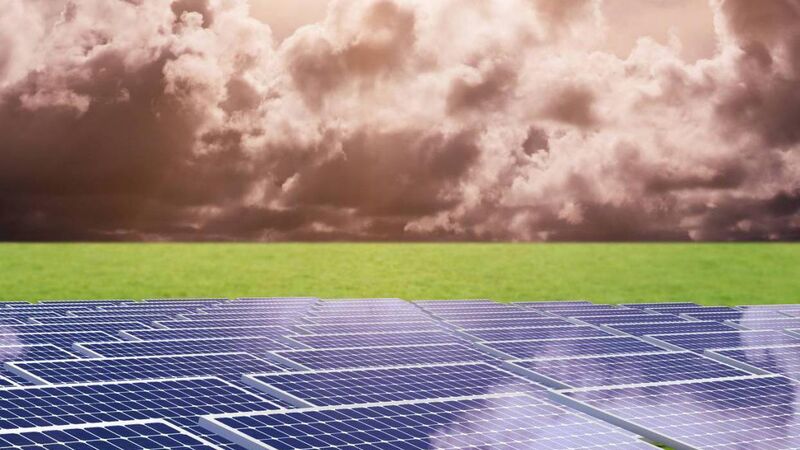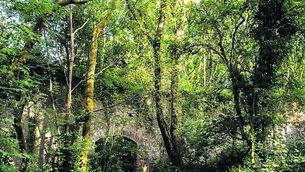Cork Views: Make 2025 the year YOU start helping to save the planet

At this stage of the holidays, the glow of the festive season is dimmed by the fact the recycling bins are fit to burst, we’ve probably thrown away more food than we’d admit to anyone (I hear the words “sinful waste” in the voice of my grandmother every time I scrape food into my brown bin), and the enthusiastic demolishment of multiple boxes of chocolates can be most definitely felt accumulated around the hips.
It’s the time of the year when you reflect on what has passed, and start thinking about what you want to do with the coming 52 weeks.
2024 was a tough one. Whether it was watching the distressing genocide in Gaza, the hateful anti-immigration violence in Coolock, the worrying re-election of Donald Trump, or the rising costs of everything.
It was also a year that the climate extremes just kept coming and coming. The sight of towns and lives being washed away became almost regular news items.
The extreme flooding caused by Hurricane Helene in the US, the meteorological event DANA which dumped tonnes of rain on Valencia in Spain, and just before Christmas Cyclone Chico flattened Mayotte, a French island in the Indian Ocean. And that was just the rain.
2024 was the hottest year on record, the first in which the global average temperature exceeded 1.5C above pre-industrial levels, and thousands of people died from excess.
This 1.5C milestone is significant because the Paris Agreement aims to limit long-term warming to well below 2C, preferably to 1.5C, to mitigate severe climate impacts.
While this 1.5C overshoot in 2024 is likely temporary and does not mean that the long-term average has surpassed this threshold, it is significant because it serves as a stark reminder of the accelerating pace of climate change.
Global carbon emissions are going up and we are still waiting for the implementation of ambitious climate action to reduce greenhouse gas emissions and stabilise global temperature.
So, it is a normal and appropriate response to be rightly worried about climate change, and taking tangible steps in 2025 to lessen our impact on the planet is a good way to deal with that anxiety.
I hate to break it to you, but bringing a reusable bag to the supermarket is not going to save the planet. Watching another documentary on Netflix about the demise of the glaciers won’t change anything either, but taking a good, hard look at how you use fossil fuels, and taking steps to reduce that usage across the year, will.
Calculating how you travel, heat your home, use electricity, and buy and consume stuff will give you a sense of your so-called carbon footprint.
Knowing the carbon footprint of your home or workplace makes it much easier to get involved in reducing that footprint.
That’s how I deal with climate anxiety. I try to make one or two significant climate actions each year.
I obviously had to invest more of my own money, but it is very much an investment. I will be saving money on my heating and electricity bills for a long time along, with the comfort of knowing that I’m reducing my carbon emissions too.
Over the past decade, the average per capita emissions in Ireland were 12.1 tonnes. In 2021, Ireland had the second highest per capita greenhouse gas emissions in the EU at 12.3 tonnes - 59% higher than the EU average of 7.8 tonnes!
The good news is those numbers are coming down, from 11.4 tonnes of CO2 per capita in 2022 to 10.4 tonnes in 2023.
Ireland’s greenhouse gas emissions decreased by 6.8% in 2023 with reductions in almost all sectors. This is the lowest that greenhouse gas emissions have been in three decades. But we need to move faster!
The Climate Change Advisory Council (CCAC) latest report, published just before Christmas, says despite the positive news, Ireland is still currently set to miss its agreed carbon budget to 2030.
The CCAC says Ireland needs to completely phase-out fossil fuel usage by 2039. No petrol, diesel, coal or gas usage in our homes, cars, factories, or power stations in 14 years!
2011 doesn’t feel like a long time ago, but a lot can happen in 14 years when you put your mind to it.
The work, effort and money that is required to get us off fossil fuels will be time and resources well spent.
We have an opportunity to achieve a more sustainable society, a cleaner environment with improved health and wellbeing for all of our citizens. With the implementation of ambitious climate action, we can avoid enormous fines and be more competitive.
Ireland could become a genuinely green country.
So, for 2025 make a resolution to check and reduce your carbon footprint.
The Irish Environmental Protection Agency has links and tips on its website. Make a list of all the things you could do and then start the research.
Get a home energy assessment, talk to your friends and neighbours who have an EV, a heat pump or have started cycling to work.
Think about what you can afford, and if you need a loan to make some of them happen.
None of these things happen overnight, but if each of us dedicates a little time each week and commits to ticking one significant climate action off the list this year and the next and the next, just think of what we could get done in the next 14 years.
Happy New Year!







 App?
App?




